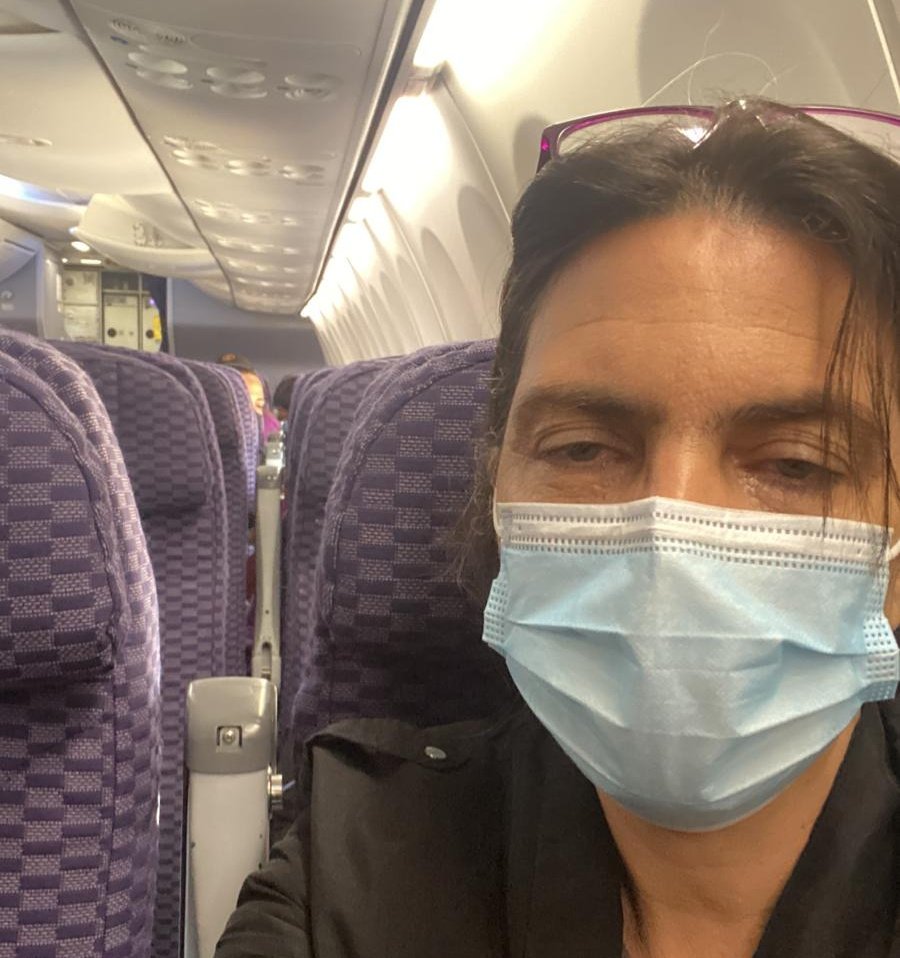
By Pamela Cruz. Peninsula 360 Press [P360P].
Journalist Adriana Sivori, of the Venezuelan channel Telesur, told the Venezuelan network UNETV that she was denied entry at the Tegucigalpa airport when she tried to cover the general elections in Honduras on November 28.
"The superiors are not authorizing his entry. They are applying Article 87 of the Migration and Alien Law," CESPAD reported that the journalist was told at Toncontín International Airport when she arrived in Honduras on the afternoon of Friday, November 19.
With that argument, he said, the government of Juan Orlando Hernández - the current president of Honduras - prohibited Sivori from entering the country, with the aim of preventing him from covering the general elections to be held this coming Sunday.
The Venezuelan journalist said the only possible explanation was that the government did not want the election day coverage.
And the countdown has begun, because next Sunday, November 28 will be held the general elections in Honduras, which according to experts in electoral matters in that country, will be the elections that will mark the future of the country in terms of democracy.
In response, the Center for the Study of Democracy in Honduras (CESPAD) rejected and denounced the refusal to allow the Telesur journalist to enter the country "because it is a clear sign of intolerance to criticism and questioning, an attitude typical of governments hostile to democracy".
In a press release, she said that society was surprised and concerned by the Honduran government's decision to prevent the journalist, who has regularly covered, among other events, general elections, from entering the country.
"The government's decision adds to the climate of disrespect for the right to freedom of expression that persists in the country and ratifies the perception that Honduras is one of the most dangerous countries for the practice of journalism, according to international and national organizations such as Reporters Without Borders and the Committee for Free Expression (C-Libre)," he said.
The organisation added that equally worrying is that such action comes at such an important political moment for this country, "which requires, more than ever, that this be the most supervised, monitored, very well informed and mostly reported general elections, taking into account the events that transpired during and after the 2017 general elections."
CESPAD urged the High Commissioner for Human Rights to make a statement on the case, to investigate the facts and to demand that the Honduran government respect democratic freedoms for national and international journalists who will be covering the general elections.
At the same time, he asked the rapporteur for Freedom of Expression to urge and demand from Honduras tolerance and respect for freedom of expression, to inform and give access to information to the press, as well as to morally sanction the behavior of the current government administration.
He called on the Honduran government to refrain from continuing these practices that undermine basic respect for freedom of information, "a tool that will help ensure that the elections will indeed be transparent and fair.
Pretexts to silence voices
Upon review, article 87 of the Migration and Aliens Act, which refers to "cases in which a foreigner may be rejected," the organization said, contains five paragraphs, two of which relate to this situation.
The second paragraph does not allow foreigners to enter the country "when there is a prohibition of entry ordered by a competent authority", while the third paragraph states that "when they are in one of the situations indicated in Article 81 of this Law".
Article 81, for its part, contains 8 paragraphs. Number 6 literally says that it prohibits entry to: "those who advise, incite, teach or practice disobedience to Honduran laws and authorities, the overthrow of the Honduran government, the disregard of the democratic system of government or promote or act against it or ally themselves with causes or countries that attack Honduras and its national interests," he said.
Honduras' 2021 general elections will elect the president to replace Juan Orlando Hernández Alvarado of the National Party, who won the presidency in 2013, was re-elected in 2017 in a messy election that gave him victory after a "blackout," and will also renew legislative and municipal representatives.
Just this Saturday, November 20, the U.S. State Department announced that the Assistant Secretary of State for Western Hemisphere Affairs, Brian Nichols, will visit Tegucigalpa, capital of Honduras, from November 21 to 23 to monitor that the elections in that country are "free and fair".
You may be interested in: Honduras energy sector corruption scheme


